10 Easy Tips To Keep Your Nails Healthy
By: Kratika Tue, 03 Nov 2020 1:12:23
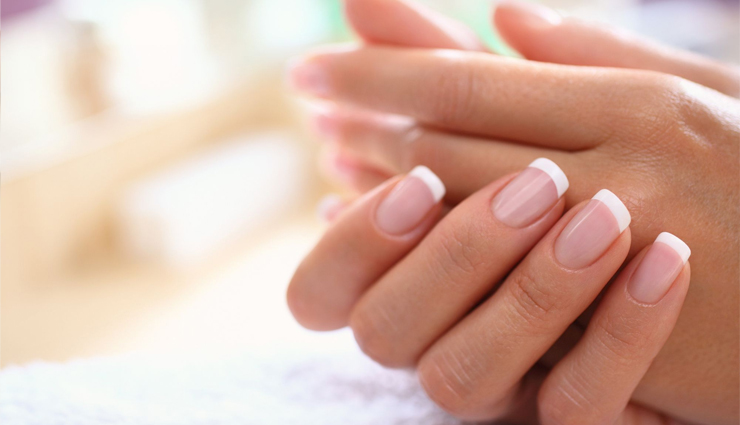
Just like you want your hair and skin to be healthy in the same way taking care of your nails is a crucial part of a neat and pulled together appearance. But unfortunately, many of us fall prey to the myths about how to take care of your nails properly. Also, the great reliance on modern day salons can affect your nails as they don’t always give you the best advice. Who will not love gorgeous and well-maintained nails but despite the importance of taking care of nails many of us often tend to neglect it the most.
Here are some simple and easy to follow tips to take best care of your nails-
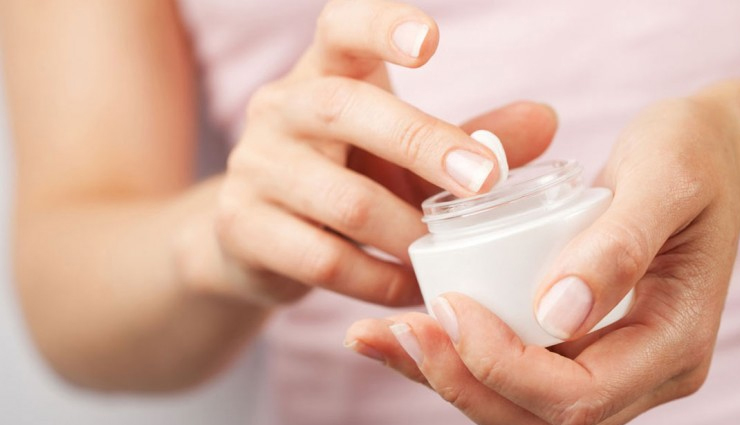
# Never cut or manipulate your cuticles
Dermatologist recommends that no matter how you groom your nails, leave your cuticles alone. Cuticles are natural barriers to all kinds of fungus and bacteria and they act as protection for your nails. Cutting cuticles might cause infections and may also lead to nail damage. And while cutting cuticles cause harm, pushing them back can also cause problems as well. Cuticles don’t want to be cut, they are supposed to be soft, and cutting can make them hard, more likely to fracture. If you cut it, it has an increased tendency to split off.
# Moisturize your nails and cuticle
Moisturizing your nails will help nails grow and make cuticles look better and help protect nails from breaking due to a lack of moisture. If your nails are breaking every now and then, it could mean they need moisture and putting oil or cream around the cuticle helps moisturize the entire nail, which will reduce the incidence of chipping, cracking, and splitting. Olive oil is one of the great moisturizers for healthy nails and before going to bed you can use this oil to keep your nails well moisturized.
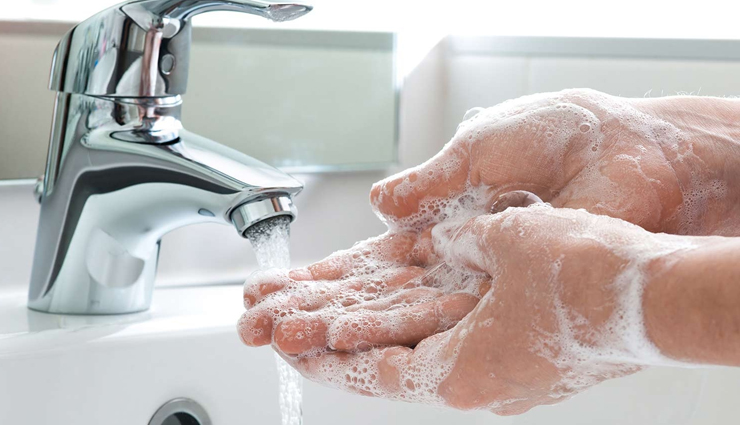
# Stop overdoing hand washing
While it is considered healthy to wash your hands frequently but overdoing it may cause serious problems to your nails. If you are in a profession where frequent hand washing is mandatory then you should use moisturizer as often as possible and rub a little extra around the cuticles several times a day. Also when doing household chores like laundry or washing utensils try to minimize contact with harsh chemicals like washing powder and dishwashing chemicals by wearing gloves whenever it is possible.
# Eat healthy
Whatever we eat directly reflects on our nails. So, it becomes essential to replenish them, which you can do so by an adequate supply of calcium, vitamin A, phosphorous, zinc, folic acid, silica, vitamin C. Try drinking plenty of milk and water and eat milk products like cheese and yogurt. Eggs, green leafy vegetables such as spinach, parsley, coriander, broccoli, apricots, carrots, almonds are your friends and are good supplements to your diet. If nails seem to discolor they indicate a vitamin deficiency.
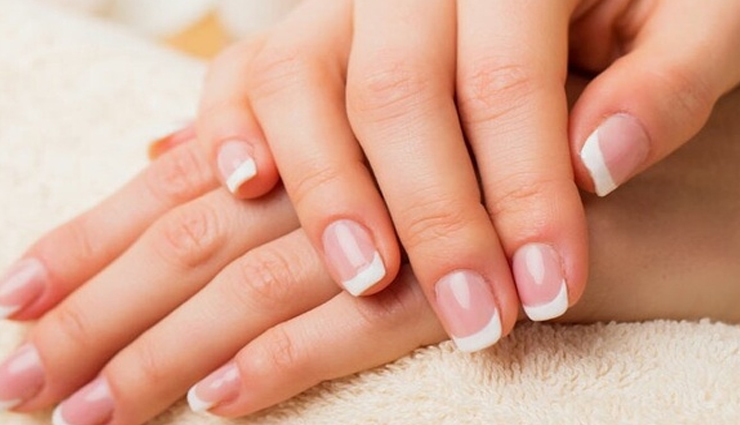
# say no to acetone-based polish removers
Try not to use acetone nail polish remover. It is one of those products that all dermatologists will stop you from using especially if you have brittle nails. It has been noted time and again that it strips the nails, causing them to become brittle. It is very harsh as it removes a lot of natural oils from your skin. In fact, sometimes your skin will look really white if you have used too much acetone on it. Instead of this opt for oil-based nail polish removals. They are less harmful to your nails.
# Keep your nails clean
You must keep your nails clean and take out time to wash in and around your nails. Soak them in warm soapy water and use a soft brush to clean them. This will not only clean your nails but will prevent any types of infections which occur due to germs and dirt accumulations. The dead skin around the nails can be removed with the help of a pumice stone. A regular manicure will also help in getting rid of dead skin accumulation around your nails. Try to keep your nails dry because if they remain wet there will be formation of bacteria or fungi.
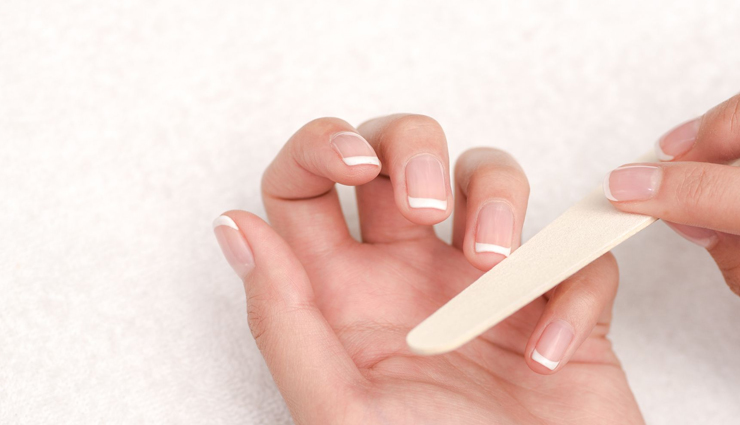
# Try not to use nail hardeners
The take-home message here is that nail hardeners do more damage than good. These products are not studied clinically, so most claims are not backed up by science. Unless nails are exceptionally weak and fragile, most people don’t benefit from a nail hardener. Healthy nails are flexible nails and to keep yours from breaking, avoid anything that makes them more brittle.
# Stop getting manicures done every now and then
Most of us like to pamper ourselves with regular manicure or pedicure but according to a study, those who indulged regularly in such activities were the most likely to suffer from dry and brittle nails. The doctors theorize that exposure to more chemicals and harsher ingredients may be one reason. Researchers have found out that women who get manicures frequently suffer from chronic nail bed infections and puffy, reddened areas around the base of the nail. The area around your nail bed should be flat when you look from sideways. If it’s puffy, that’s evidence of a chronic infection. In order to reduce this problem take your own tools to the manicure. This will definitely cut down on the risk of infections and help ensure a healthier experience.
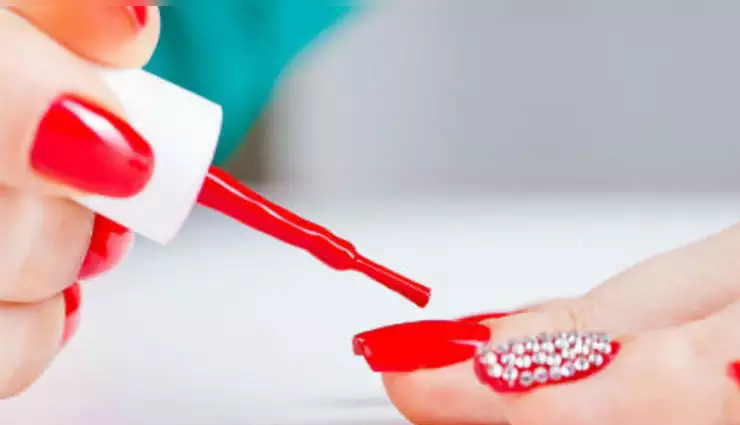
# Try Choosing nail tips over full extensions
It has been found out that in general, nail extensions are bad news for nails, frequently leading to fungal or even bacterial infections and sometimes to permanent damage. If you still want to wear nail extensions then just opt for the tips. While they can still cause problems, the potential for damage is less since the surface area covered is smaller.
# Stop using acrylic nail polishes
The acrylic nail polishes might seem a more attractive option, easy to maintain and lengthen your short nails as compared to the regular nail polishes but the side effects can be scary. The chemicals used to apply acrylic nails are very unhealthy and include such offenders as resins and formaldehyde, which have been shown to cause cancer. Exposure to these chemicals through your nails over a long period of time can result in complete nail loss by the destruction of the nail matrix. Using of acrylics will gradually lead to drying out of natural oils which can cause damage and splitting. They may also lead to serious nail breaks, infection and loss of the natural nail. Allergic reactions have also been reported with acrylic nails, resulting in serious inflammation and thinning of the beds.





